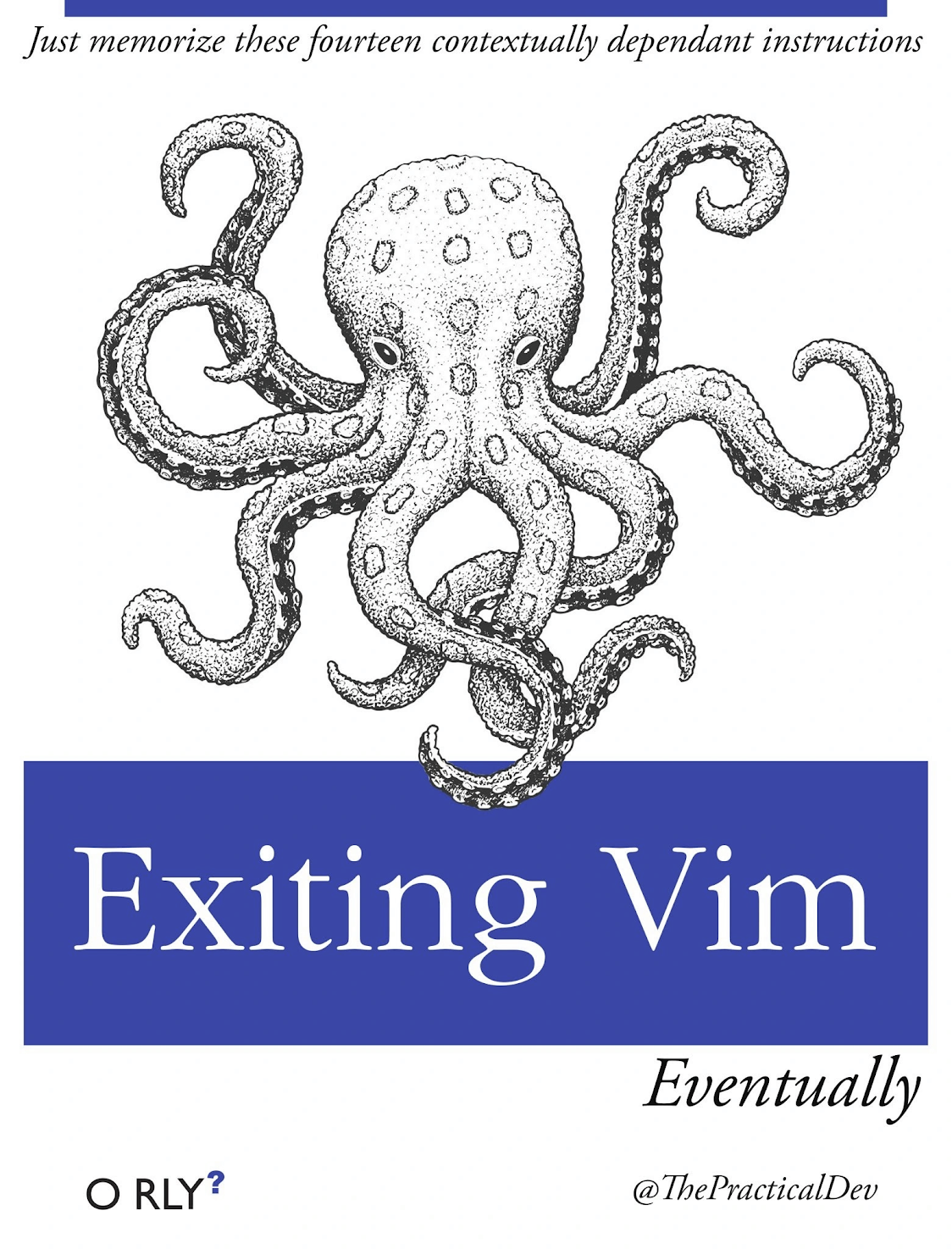That after getting used to Linux I will hate to be forced to use less free operating systems.
Linux
From Wikipedia, the free encyclopedia
Linux is a family of open source Unix-like operating systems based on the Linux kernel, an operating system kernel first released on September 17, 1991 by Linus Torvalds. Linux is typically packaged in a Linux distribution (or distro for short).
Distributions include the Linux kernel and supporting system software and libraries, many of which are provided by the GNU Project. Many Linux distributions use the word "Linux" in their name, but the Free Software Foundation uses the name GNU/Linux to emphasize the importance of GNU software, causing some controversy.
Rules
- Posts must be relevant to operating systems running the Linux kernel. GNU/Linux or otherwise.
- No misinformation
- No NSFW content
- No hate speech, bigotry, etc
Related Communities
Community icon by Alpár-Etele Méder, licensed under CC BY 3.0
This so much. I absolutely cannot stand Windows anymore.
Windows is so bad
Once you go FOSS, you never go back.
How to quit vim.
Just read this book:

Used to use gedit, the found nano and it was awesome. Then found Vim... I RAN back to nano haha
Try micro.
It's much better and quite easy if not easier to use than nano. It should really be the default simple editor.
I guess the main things would be:
- As a beginner, don't bother trying to dual boot -- If you still need a Windows box, get some cheap hardware to do your Linux work on. It's too easy to screw up both systems otherwise.
- Don't get too hung up on a specific distro, the better you are at dealing with different configurations, the better prepared you will be for whatever comes. Once you've gotten one set up, don't be afraid to just try a different one.
I never had a problem dual booting, even as a beginner. I always kept everything on two separate drives, though, each with their own EFI partition.
I did the opposite, have always dual booted my laptops and had win on my PC until quite recently now that I'm comfortable enough not to need a safety net anymore
The 1:1 windows:Linux replacement is just a means to keep you on Windows. Once you learn Linux, you'll come to understand how much of a farce it is and how it's designed to keep you away
That I could put /home on a different drive
That I would never boot into Windows again so having partitions for it was a waste of time
That mounting drives with their uuid as the mount location is insane
That mounting drives with their uuid as the mount location is insane
Why tho? Kernel sometimes can index drives in different order (if you have multiple drives), screwing your mount locations. But UUID is always the same
You can give your partitions labels and mount by label. Labels are persistent, like UUIDs, but are also easier to remember and copy.
Trying not to make it windows.
There's a lot of conveniences that Windows comes default with.
When I switched to Linux, my immediate goal was to find alternatives for EVERYTHING. That lead to being disappointed by a lot.
Understanding Linux and also recognizing there's a lot of shit I don't need (that windows was giving me for the sake of VALUE) was a game changer.
Understanding Linux and also recognizing there's a lot of shit I don't need (that windows was giving me for the sake of VALUE) was a game changer.
This 100%! After using Linux for the past few years I've realized a lot of the crap windows has by default is stuffed in there to have something to market.
Linux is pretty easy to use nowadays. The only thing I would check before switching is driver compatibility.
"20 years from now, people are still discussing moving to Linux!"
People who wanted Linux on the desktop to be so user-friendly their grandma could use it are now grandparents.
Distrobox exists, so one is not bound to use a specific distro just because it packages some of the apps/binaries they require.
Installed distrobox on NixOS because I was worried being limited to only nixpkgs and have not touched it once lol
Same goes for the windows VM except for the time I needed to run excel macros for work
To start sooner.
It was ~20 years ago so my advice to myself then would be pretty irrelevant now. I messed up my laptop, and my advice then would have been don't start with a laptop (because laptop compatibility was lacking back then compared to desktop, different times).
Laptop compatibility still sucks at times, especially with weird configurations of amd apu and nvidia gpu laptops... or maybe it's just my skill issue.
Unmounting removable drives after writing to then is crucially more important than on Windows
That I shouldn't care as much about installed packages I no longer use. Sure, going through installed programs and cleaning up from time to time is ok, but no need to panic if something sticks around.
Especially when I installed something manually needing dependencies for programming, I tend to write down names of installed packages and then managing it manually, because I wasn't yet aware what their names mean. Now using same OS for over a year, heavly testing stuff, having multiple desktop enviroments and not cleaning it up my system partition is taking less than 30GB, compared to 1TB disk it's nothing.
When you're just trying to get work done: pick a solid, well-tested high-profile distribution like Fedora, Pop!_OS, or Debian (or Ubuntu). Don't look for the most beautiful, or most up-to-date, or most light-weight (e.g. low CPU usage, RAM, etc.). Don't distro hop just to see what you're missing.
Of course, do those things if you want to mess around, have fun, or learn! But not when you're trying to get work done.
TIL there's tab completion lol
Tab completion, history, history search, you name it
Always put your filesystems in an LVM volume (and in general, partition disks with LVM rather than partition tables)! You never know when you might need to combine multiple disks, make a snapshot, add redundancy, or transfer to another disk without unmounting. But it's very difficult to format a block device as LVM once you can't erase its contents.
Make your /boot partition at least 500MiB.
Leave at least 1GiB of free space at the beginning of every disk. You never know when you might need to add EFI and boot partitions to that disk. And again, it's very difficult to do after the fact.
After switching to Linux I wish I knew how to report bugs. I'm a qa tester and I notice so many little things that can be replicated and fixing them would polish the user experience. But there are so many layers I don't know who to report the issue to. My first thought wasto report it to the distro forum and have the more technical people there take a look at the issue then escalate it to the distro maintainers or the actual software devs.
Another thing I wish I knew, was how to get my 2nd hdd to mount automatically. I fucked to my system 4 times(and recovered it) trying and then had to get my sys admin friend to do it for me.
Reporting KDE bugs is still extremely inconvenient.
There should be a 1-click option just to submit an automatically collected data dump, maybe with an optional text field we can write. Just to help providing some data, without all the hassle of creating an account, answering N questions, and following up with answers - sometimes I do care about the issue, most times I don't, but still want to flag that something wrong happened so they're aware of it.
I have the impression that a lot of bugs and random crashes go unnoticed because users don't bother to go through the process of opening a bug report - and they shouldn't need to, nor know how to.
That even though you are running an LTS version of Ubuntu (e.g. Ubuntu 22.04), some packages that have arrived over a year ago on e.g. 23.10 will never arrive on 22.04.
Example: i3-wm 4.22 or up (https://packages.ubuntu.com/search?keywords=i3&searchon=names&suite=jammy§ion=all).
That you can use any DE on any distro
Gnome is better on 1920 than in 1366. XFCE is better on 1366...
And Ubuntu sucks..
tab completion
Proper drive mounting process. When I finally learned, it was a life changer.
Please explain. You make me wonder if I'm doing it wrong.
That just like windows and Mac if it doesn't support that platform prepare for headaches. Unlike windows and Mac you can get things that aren't supposed to run on Linux to run thanks to great tools like wine, proton, and even waydroid. But if you wanna avoid headaches just stick with what's supported for the most part.
